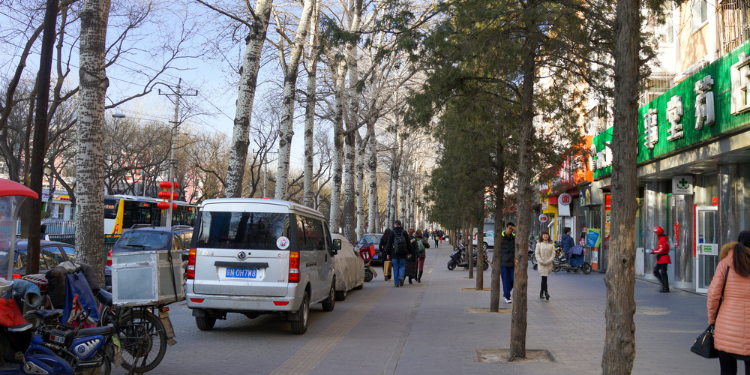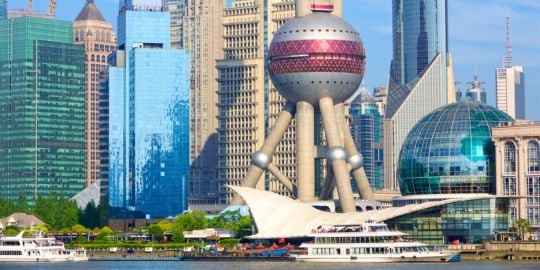China strengthens its zero Covid policy
Although epidemiologists question China's "zero Covid" policy, the country isn't willing to turn back. Experts, however, believe that this policy is not so efficient face with the Omicron variant. This situation is quite risky for the Chinese economy. Shanghai is also sinking under the weight of lockdowns, followed by Beijing. Last Wednesday, the capital city had a record of more than 100 positive Covid cases. On April 29, mainland China recorded nearly 30,000 cases per day, including a large number in Shanghai. Last week, Beijing started a vast screening campaign, targeting particularly the bustling district of Chaoyang and Tongzhou. Local authorities are trying to avoid locking down a whole city by confining neighborhoods with a rising number of cases.
Shanghai is already suffering the economic and social consequences of this endless lockdown, as evidenced by food shortages, supply problems, etc. People are voicing out their discontent on social media. Both locals and foreigners feel abandoned by the government. Expatriates, however, believe that these new measures are too much. “All countries are reopening their borders, unlike China. While have vainly been looking forward to an opening, they are only introducing new restrictions. We are being treated as worthless people. Enough is enough. I've played the game so far. I am fully vaccinated, and I got tested a couple of times. What else do they need? We can neither live nor work normally. This is not the China I came here for", says a British expats who is a bank employee, and has lived in Beijing for fifteen years. He has made up his mind to return to the UK , and this is final.
Has the pandemic scared away expats?
Before the pandemic, Chinese economic growth could rely on the rise in the number of expatriates. According to official figures, there were nearly 850,000 foreigners in China between 2010 and 2020 - which is significantly more than in the previous decade (about 590,000 foreigners). These figures exclude around 600,000 foreigners living in Hong Kong, Macau and Taiwan. China has been continuously experiencing exponential economic growth since its opening to the market economy in the early 1980s. Between 1980 and 2017, the Chinese GDP rose by around 10% per year. The country's economic prosperity has been attracting investors and foreign talents. Shanghai, Beijing, Shenzhen and Guangzhou thus became financial hubs and the country's wealthiest cities. Many foreign companies and employees chose China to boost their activities or careers. Before Covid, just over half of these immigrants in China were women who had settled permanently in the territory (more than 5 years), mainly in the big cities. So there were more than 160,000 foreigners in Shanghai in 2020 and more than 60,000 in Beijing.
However, the pandemic and the Chinese strategy against the crisis brought a major change. The world's second-largest economy is losing ground among expatriates. The Chinese economy was severely hit at the beginning of the pandemic. In 2021, economic growth resumed somehow, but the zero Covid policy turned the tables. Foreign subsidiaries operating in China are faced with the departure of their expatriates. International trade is also affected. Regarding expats and entrepreneurs, those who choose to leave have no guarantee of returning and resuming their activities. Subsidiaries of international groups have already lost 15% of their workforce compared to 2019. Needless to say that departures are accelerating this year. “My friends are leaving one after another. All of them believe that whatever is happening in Shanghai is too much", says a French expat in Shenzhen. "Even I wonder whether I should stay in China. Everything has changed, and even the atmosphere is weird. Grégory Prudhommeaux, another expat, says among the expats he knew in Shanghai, more than 60 have already left.
What next?
As companies try to compensate for the departure of their employees, they are faced with new difficulties in hiring. Indeed, there are restrictions on professional visas as well, so it's difficult for companies to ensure their turnover. As a result, more and more foreign professionals are considering other Asian countries. Is mainland China also experiencing an expat exodus?
According to experts, expat departures began before the Covid pandemic, although they agree that the pandemic only stepped up the trend. Could it be that China is not an ideal country for long-term immigration country? Over the 2010-2020 economic growth period, 20% of expatriates in Shanghai left China. In Beijing, 40% of them left.
The global community wonders whether all this is part of Xi Jinping's strategy. Until now, the President still believes in the effectiveness of the zero-Covid policy, although this means missing out on massive foreign investment. China is trying to become self-sufficient while exporting massively. It seems that the country is taking advantage of the know-how of foreign talent and then of their departure to promote local talent. Besides, the war in Ukraine shows a China that is very keen on preserving its ties with Russia and Western countries. Whether China will be able to stay in the balance is another question.
















